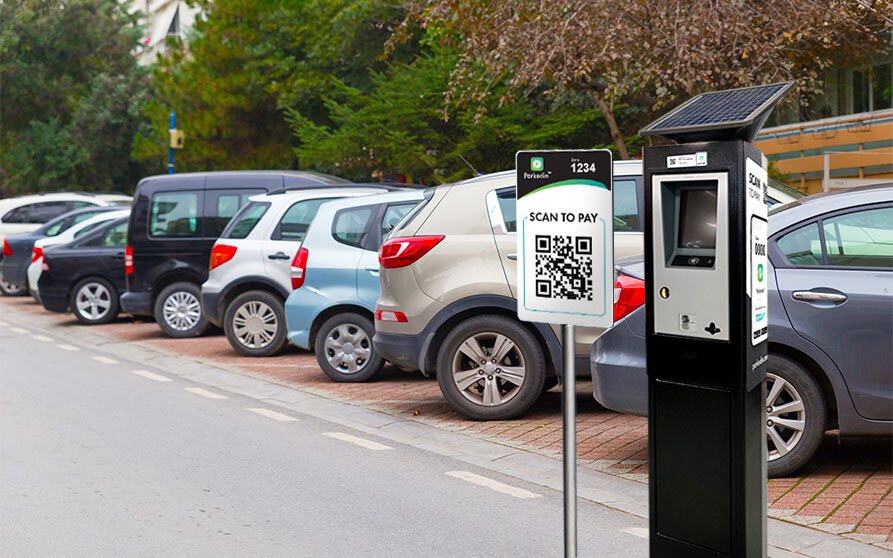Smart Parking Technology: Determining the Right Fit for Your Operation
4 min read
Published on
Smart parking technologies have become all the rage in the parking and mobility industry, utilizing digitalization to enhance customer experiences and automate processes. Despite this, parking meters remain a popular choice amongst parking operators and facility managers alike when deploying a paid parking system. The question is, why?
Below are the pros and cons of four highly deployed types of parking equipment that will help you determine which is the right fit for your operation.
1. Parking Meters
Parking meters are among the most reliable parking technologies on the market. Depending on your operational needs, it can accept various payment methods, from coins to contact-free payments, making it easier for your customers to pay for parking at their convenience. With the time limit of parking meters set in the system, it encourages a frequent turnover of parking spaces, generating more revenue for you. The initial installation and maintenance costs are comparatively lower than other parking technologies, which makes it the preferred choice for facility managers.
There are still some limitations to deploying parking meter operations. Since the parking meter relies on the driver’s honesty to pay for parking, it is a possibility that some customers refuse to do so. Additionally, due to the lack of automated restrictions on overtime parking, patrol officers must stand by for parking enforcement, leading to staffing costs.
2. Gated Parking Systems
One of the significant benefits of installing gated parking technology is that it allows you to control who is coming in and out of your facility at all times. Customers are typically only able to enter and exit your facility by paying at the gate or pay station before leaving the lot. Real-time data is automatically collected to determine parking occupancy, revenue, and even frequently used payment methods—allowing you pinpoint opportunities and make informed decisions.
Gated parking technology is typically more costly to install and maintain, particularly for larger parking facilities. They require regular maintenance to ensure the equipment is functioning correctly and to prevent malfunctions that could disrupt parking operations.
3. License Plate Recognition (LPR)
License Plate Recognition technology (LPR) can revolutionize your day-to-day operations, streamline access control, and significantly reduce staffing costs. With an , LPR technology is highly effective in identifying and recording license plates, thus reducing violations and false payment claims by up to 44%, enhancing revenue collection and safeguarding your bottom line. LPR technology automatically stores valuable information in a cloud-based system, enabling operators to extract valuable business insights, such as dwell time and parking behaviours, to optimize parking lot occupancy rates.
It is essential to note that maintenance costs may pose a concern for some operations to adopt LPR technology. It requires regular maintenance to ensure the proper functioning of recognition systems, placing an additional burden on management. Moreover, adverse weather conditions, low-light environments, or obscured license plates may impede the functionality of LPR technology.
4. Mobile Parking Platforms
Mobile parking platforms create easy and efficient parking experiences for your customers, and often offer both app and app-free capabilities. Whether it be for payment, parking reservations, or validations, these platforms can be used for just about anything, and be customized to meet your unique operational needs. Insights on parking usage and customer behavior can be analyzed to optimize operations and improve the customer experience.
Technical issues or scheduled downtimes may arise, affecting parking operations and customer satisfaction. Implementing and maintaining a mobile app requires a significant initial investment. Moreover, although most customers use smartphones daily, access to network connections and reluctance to download parking apps may limit the usefulness and adoption of the platform.
To optimize your parking operation, it is imperative to partner with a parking operator that thoroughly analyzes your parking lots unique requirements and can select the most suitable parking technology. By considering critical factors such as location, traffic volume, available technology, and customer preferences, operators can develop a smart parking system that prioritizes efficiency, improves the customer experience, and boosts revenue. Ongoing monitoring and evaluation of your parking system are mandatory to identify opportunities for improvement and ensure that the system remains aligned with your evolving needs and those of your customers.
References
Brown, K. (2022, October 5). License plate readers: Pros and cons for condos and hoas to consider. Retrieved April 21, 2023, from
Gated vs. Metered Parking Systems. ArticleCity.com. (2019, October 30). Retrieved April 21, 2023, from
Parking Industry Insights. (2020, August 5). Ultimate Guide to finding the Right Parking Meters for your needs. Retrieved April 21, 2023, from
Director, Production and Support Services



